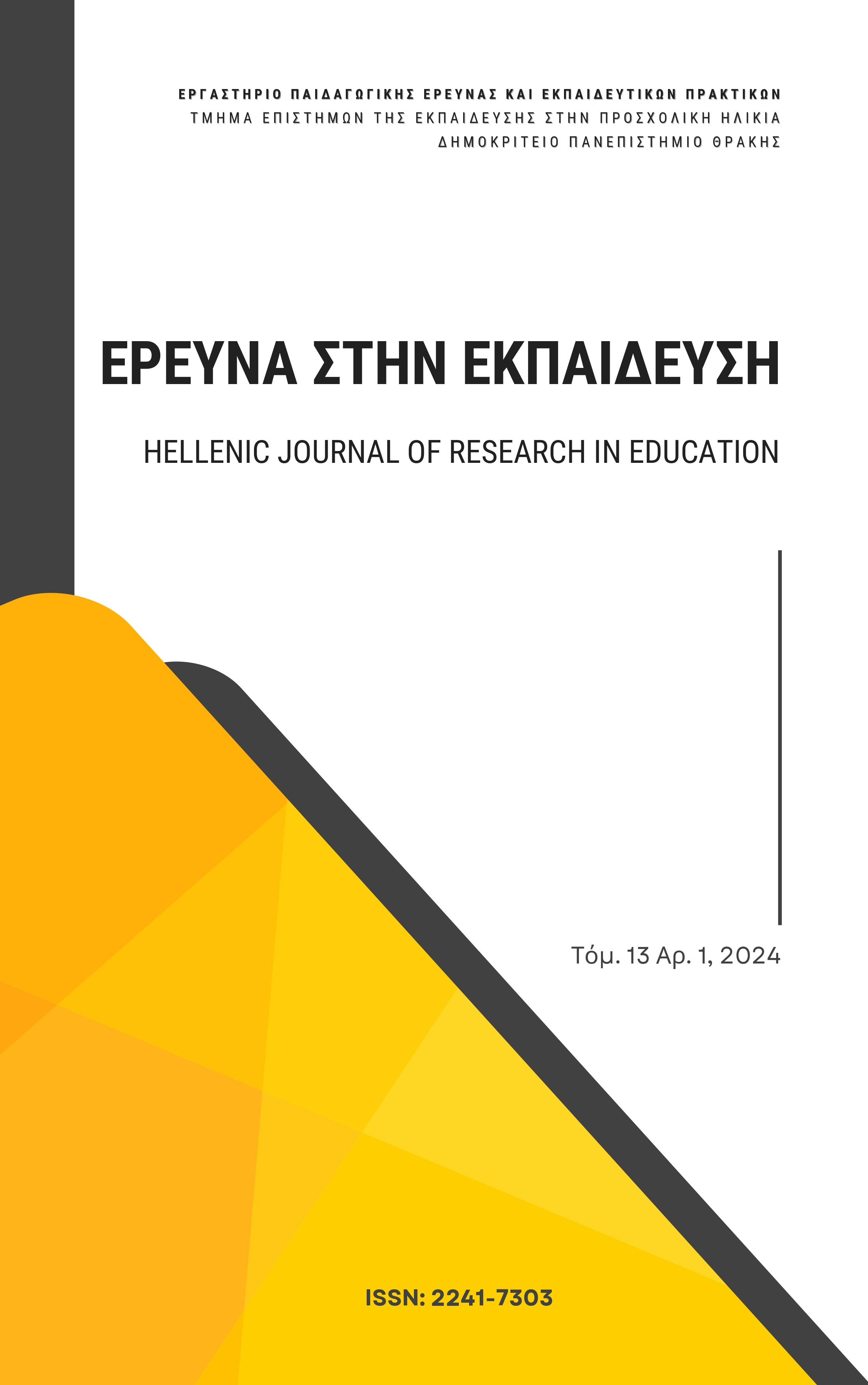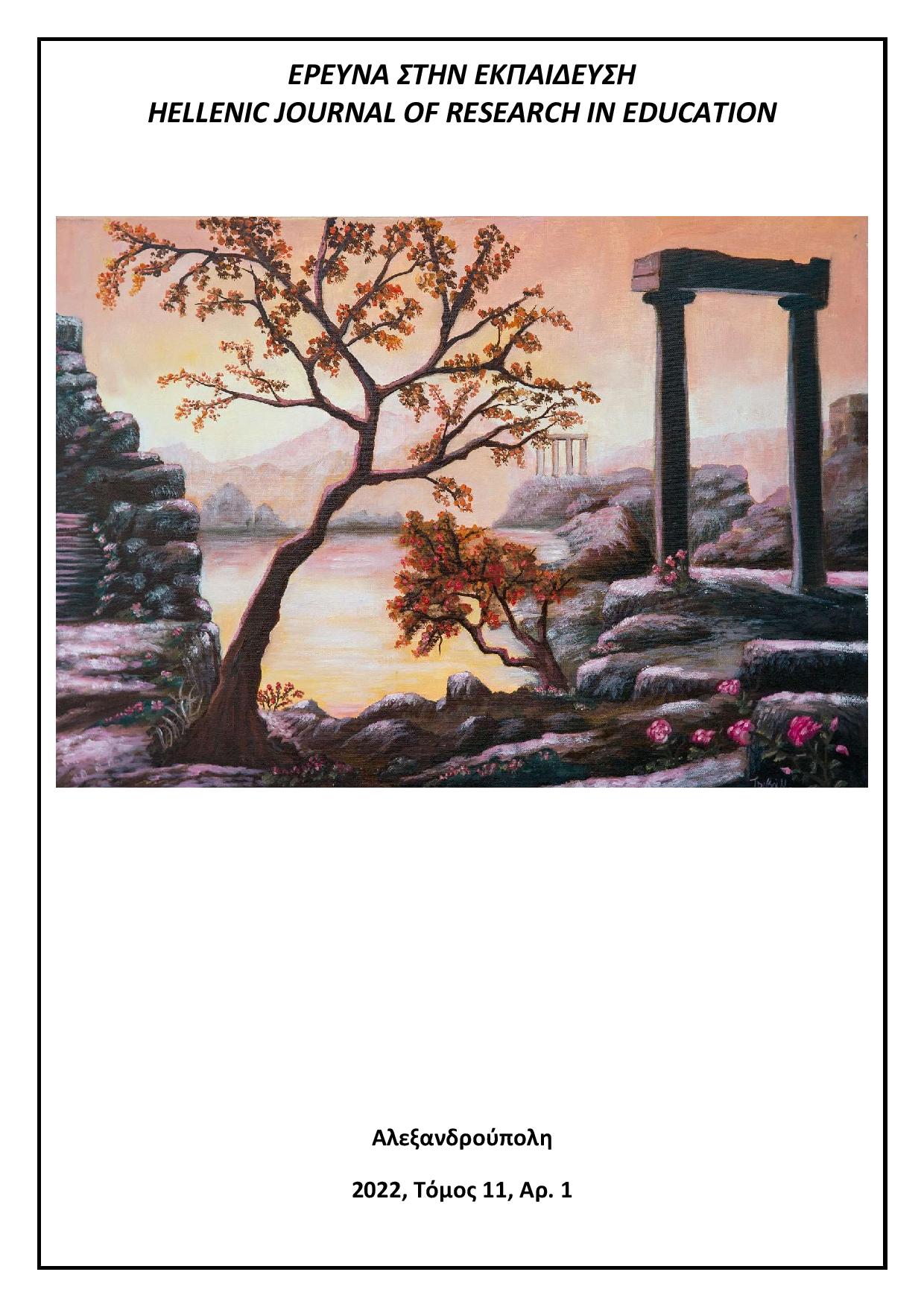Εκπαιδευτικά υλικά για το περιβάλλον και την εκπαίδευση για την αειφορία στη μη τυπική εκπαίδευση. Μία έρευνα οριοθετημένης εμβέλειας

Περίληψη
Η παρούσα έρευνα οριοθετημένης εμβέλειας επιδιώκει να χαρτογραφήσει την υπάρχουσα βιβλιογραφία σχετικά με την αποτελεσματικότητα του εκπαιδευτικού υλικού που χρησιμοποιούν οι δομές μη τυπικής εκπαίδευσης, που στοχεύουν στην εκπαίδευση για το περιβάλλον και την αειφορία. Η έρευνα εστιάζεται στο υλικό των Κέντρων Εκπαίδευσης για το Περιβάλλον και την Αειφορία (Κ.Ε.ΠΕ.Α.) και αξιοποιεί ελληνικές μεταπτυχιακές έρευνες που διερευνούν την αποτελεσματικότητα των εκπαιδευτικών υλικών των Κ.Ε.ΠΕ.Α. Επιπλέον, παραθέτει άρθρα ελληνικής και διεθνούς βιβλιογραφίας που αξιολογούν εκπαιδευτικά υλικά και προγράμματα μη τυπικής εκπαίδευσης για την εκπαίδευση για το περιβάλλον και την αειφορία μέσα από την ερμηνευτική οπτική του κοινωνικοπολιτισμικού εποικοδομητισμού. Οι ελληνικές έρευνες επισημαίνουν την ανάγκη αναθεώρησης των εκπαιδευτικών υλικών, ενώ οι διεθνείς έρευνες αναδεικνύουν την περιορισμένη βιβλιογραφία για το ζήτημα.
Λεπτομέρειες άρθρου
- Πώς να δημιουργήσετε Αναφορές
-
Στυλιανού Π. (2024). Εκπαιδευτικά υλικά για το περιβάλλον και την εκπαίδευση για την αειφορία στη μη τυπική εκπαίδευση. Μία έρευνα οριοθετημένης εμβέλειας. Έρευνα στην Εκπαίδευση, 13(1), 235–248. https://doi.org/10.12681/hjre.38910
- Τεύχος
- Τόμ. 13 Αρ. 1 (2024)
- Ενότητα
- Άρθρα

Αυτή η εργασία είναι αδειοδοτημένη υπό το CC Αναφορά Δημιουργού – Μη Εμπορική Χρήση – Παρόμοια Διανομή 4.0.
Τα πνευματικά δικαιώματα των άρθρων του περιοδικού ανήκουν στους συγγραφείς. Τα άρθρα διατίθενται με άδειες Creative Commons CC-BC-SA 4.0



